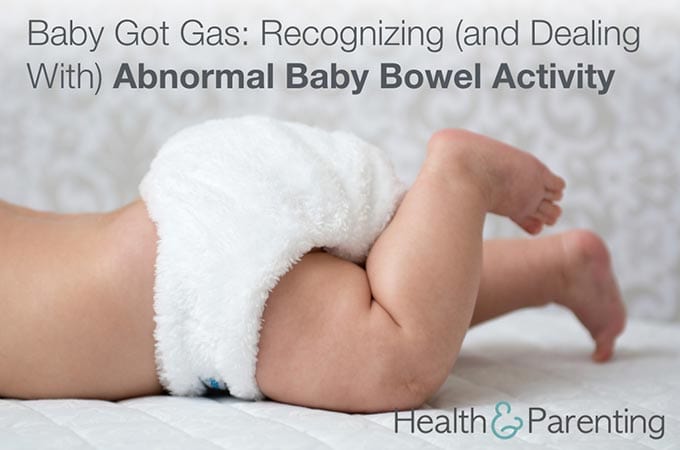Did you know you can tell a lot about a person from their bowel activity? Everything from food sensitivities to digestive health can be found not only in the how often, but also in the consistency and color of what is produced.
Okay, so let’s be honest… none of us wants to think about what our own bowel habits might say about us. We certainly don’t want to think about the bowel habits of our partners. But baby bowels? What they’ve got going on matters. And paying attention can save you all a lot of tears.
First and foremost, let’s get one thing straight: baby gas is totally normal. And in fact, as long as they are passing it, that gas can actually be a sign of relief. But when baby gas starts to build up, causing your little one to bloat or feel pain, it may be time to step in. A gentle tummy massage can sometimes help, and if you are bottle-feeding, watching the angle of the bottle to prevent too many air bubbles from passing through is advisable.
Then there’s diarrhea. In the first few months, soft baby bowel movements are absolutely normal. Remember, you baby isn’t on solid foods yet; so a liquid diet leads to soft poo.
But once those solids begin, diarrhea can be a sign of something wrong, and it can put your baby at risk for dehydration. It’s possible something your baby is eating is actually upsetting their tummy, or that the transition to solids has happened a little too quickly. If you’ve only recently made that transition, consider backing off for a few days and then slowly reintroducing one food at a time. If your baby has been eating solids for a while, and your little one has diarrhea, it’s best to inform your healthcare provider.
Finally, there’s constipation to consider. The frequency of bowel movements can vary just as much for babies as it does for adults. Some may go several times a day, while others may go only every 3 days or so, while still being completely healthy. The real thing to pay attention to is whether your little one seems to be in pain when he or she is trying to pass a bowel movement. Hard, black stools that cause discomfort for your baby are a sign of constipation, and are also a reason to talk to your doctor. It could be that the addition of prune or pear juice is all that is needed to get things moving again, but finding the root cause will likely be beneficial over the long-term.
Written by Leah Campbell, infertility advocate, adoptive mama, writer and editor. Find me @sifinalaska on Twitter.
This information is not intended to replace the advice of a trained medical doctor. Health & Parenting Ltd disclaims any liability for the decisions you make based on this information, which is provided to you on a general informational basis only and not as a substitute for personalized medical advice. All contents copyright Health & Parenting Ltd 2016. All rights reserved.










